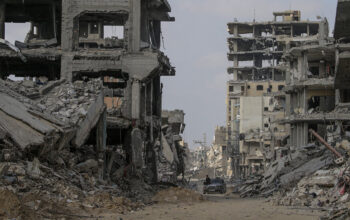
The European Union had been preparing for the possibility that Russia might halt natural gas deliveries, said Ursula von der Leyen, the European Commission president. Nonetheless, she told a news conference, the Russian move was an attempt “to use gas as an instrument of blackmail.”
Poland and Bulgaria will quickly receive gas supplies from neighboring E.U. countries to compensate for the loss of Russian gas, she said, declaring that “the era of Russian fossil fuels in Europe is coming to an end.”
Both Poland and Bulgaria said the Russian cutoff would have little impact. In Poland, where electricity is largely generated with coal, not gas, the government sought to assuage any public fears. Prime Minister Mateusz Morawiecki assured Poles that gas storage tanks were three-quarters full — much higher than in other countries.
And if the Kremlin’s plan was to intimidate Poland and Bulgaria with a future of unheated homes and cold meals in the hope of fracturing Western unity to aid Ukraine, it may have miscalculated. On a sunny spring day in Warsaw, the Polish capital, many people reacted with shrugs to the news — mixed with disbelief that anyone would ever view Russia as a trustworthy supplier.
“We have nothing to worry about if the weather stays like this,” said Joanna Gres, a ballet dancer with a troupe attached to the Polish military.
Bulgaria, too, has sufficient gas supplies for the next month, Alexander Nikolov, the energy minister, told Bulgarian news media, vowing that the country would “not negotiate under pressure and with its head bowed. ”
A top German official said the flow of Russian gas to Germany, Russia’s biggest energy customer, remained steady, while adding that the country could live off existing reserves until at least next winter.



